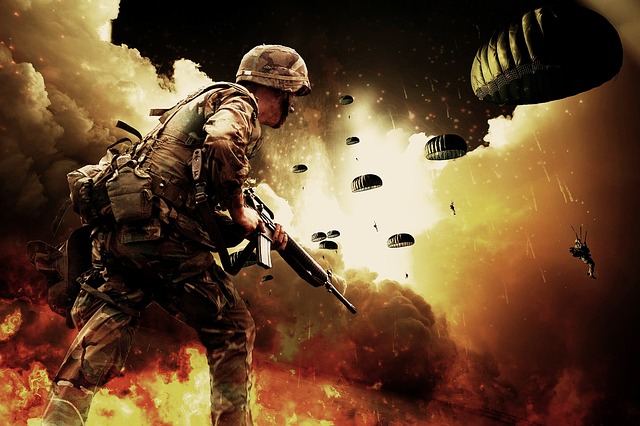Seldom are some novels written that exploit the plot of a war to explain the various paradoxes with which human beings live their lives. Many such dictators use this paradox in order to keep a war going, or to exhort citizens towards a nationalism, that serves only one purpose – to keep that one person in power.
“Catch-22” is a novel written by Joseph Heller that is set during World War II and follows the story of Captain John Yossarian, a U.S. Army Air Force B-25 bombardier. The novel is a satire that uses dark humor to critique the absurdity and madness of war, as well as the bureaucratic and capitalist systems that support it.
The novel is set in the Mediterranean Theater of World War II, where Yossarian and his comrades are assigned to bomb enemy targets in Italy and other parts of Europe. Yossarian is initially driven by a desire to do his duty, but as the war progresses, he becomes increasingly disillusioned and paranoid, as he sees the senseless loss of life and the bureaucratic inefficiencies that surround him.
One of the main themes of the novel is the concept of “Catch-22”, which is a paradoxical rule that states that a person is considered insane if they ask to be removed from combat, but requesting to be removed from combat is proof of their sanity. This paradox is used to trap Yossarian and the other soldiers in a never-ending cycle of violence and insanity.
The novel also critiques the capitalist and bureaucratic systems that support the war, with characters such as Milo Minderbinder, who profits from the war by buying and selling supplies and profiteering from black market activities, and Colonel Cathcart, who wants to win the war not for his country or his troops, but for personal gain and glory.
Throughout the novel, Yossarian’s mental and emotional state deteriorates, driven by the guilt of surviving while his friends and comrades die, and the constant fear of being killed or captured. He becomes paranoid and cynical, and starts to question the morality and purpose of the war. The novel’s ending, Yossarian makes an act to hide in order to avoid being sent back to combat and facing death.
In summary, “Catch-22” is a powerful and thought-provoking novel that critiques the absurdity and madness of war and the bureaucratic and capitalist systems that support it. Through the story of Captain John Yossarian and his comrades, the novel illustrates the senseless loss of life, the bureaucratic inefficiencies, and the exploitation that takes place during times of war. The concept of “Catch-22” serves as a metaphor for the traps that society sets for individuals, trapping them in a never-ending cycle of violence and insanity. The novel is a commentary on the moral bankruptcy of those who profit from war, the dehumanizing effects of war on soldiers, and the ultimate question of what it means to be alive.
“Catch-22” is a novel by Joseph Heller that is set during World War II and critiques the absurdity and madness of war, as well as the bureaucratic and capitalist systems that support it. Some of the top lessons that can be learned from the novel include:
- The futility of war: The novel illustrates the senseless loss of life and the bureaucratic inefficiencies that surround soldiers during times of war. It highlights the absurdity of sacrificing human lives for political or economic gain.
- The dangers of bureaucracy: The novel critiques the bureaucratic systems that support the war, showing how they can trap individuals in a cycle of violence and insanity.
- The exploitation of war: Characters such as Milo Minderbinder profit from the war by buying and selling supplies and profiteering from black market activities, serving as a commentary on the moral bankruptcy of those who profit from war.
- The dehumanizing effects of war: The novel portrays how war dehumanizes soldiers, reducing them to mere numbers and making it easy for authorities to overlook their welfare.
- The importance of individuality and free will: Yossarian’s struggles against the oppressive nature of the military bureaucracy and the Catch-22 rule highlights the importance of individual autonomy and free will.
- The question of morality and the meaning of life: Through the eyes of Yossarian, the novel poses the question of what it means to be alive, and the morality of sacrificing lives for political or economic gain.
- The value of critical thinking and questioning authority: the novel encourages readers to question authority, and to think critically about the systems and institutions that control their lives, and to question the morality of actions being taken by those in power.












